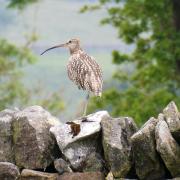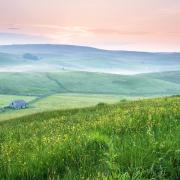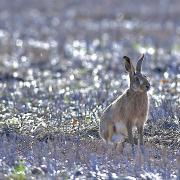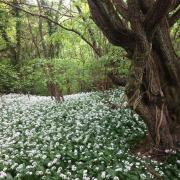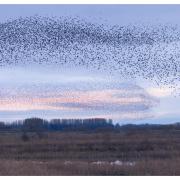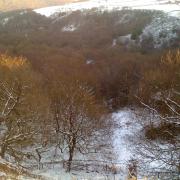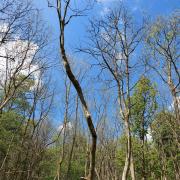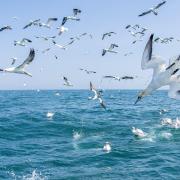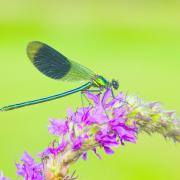Horse power has been giving nature a helping hoof in the Wolds. Words and photographs by Tom Marshall

A conservation charity called in some four-legged hired help to make a difference for rare river wildlife near Driffield.
The crystal-clear chalk streams of the Yorkshire Wolds are among some of the most diverse freshwater habitats in the world, with the UK home to some 85 per cent of the global resource of just 200 such streams.
The typically shallow waterways are fed by heavily filtered rainwater that spends years in the chalk rocks of the Wolds before rising up the aquifer. This purity means a host of species can make a home here, from ‘Ratty’ of Wind in the Willows fame – the water vole, to lamprey, brown trout and the stunning kingfisher.
The fine gravels of the riverbed are crucial for fish spawning, but managing these delicate habitats to reduce silting-up is no job for a heavy-handed digger.

That’s why Yorkshire Wildlife Trust’s Living Landscapes manager Jon Traill called upon just one horse power in the shape of Blue and her owner Chris Wadsworth for this unique pilot project, the first of its kind in a northern chalk stream.
Using a specially adapted rake, Blue’s relatively light touch has helped to prepare the gravel beds in several parts of the West Beck Site of Special Scientific Interest, with the support of the East Yorkshire Rivers Trust, West Beck Preservation Society, the Environment Agency and Natural England.
Jon Traill explained: ‘Blue’s hard work will help to open up the gravels, liberating the trapped silt. Nice open gravels are just the sort of habitat required by many fish species for spawning. Brown trout, bullhead, lamprey and grayling will all be set to benefit from the work, and of course species like kingfishers and otters.’
This latest project comes after more than 10 years of river conservation work led by Yorkshire Wildlife Trust in the area, with the current scheme called ‘Crystal Clear’.
To find out more, visit ywt.org.uk




